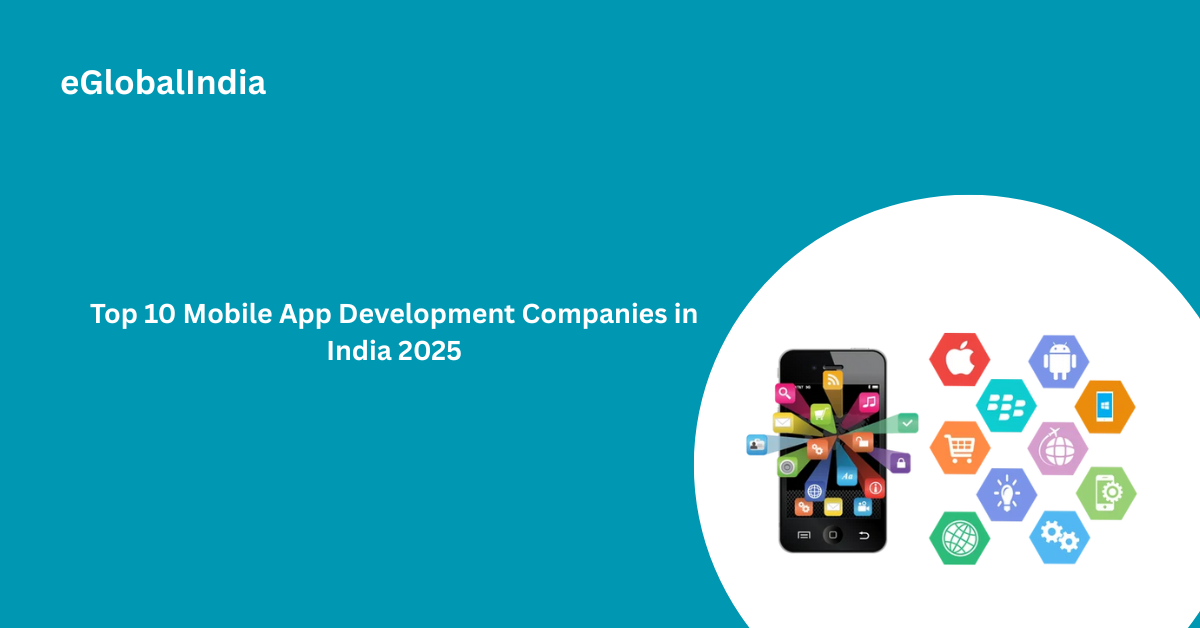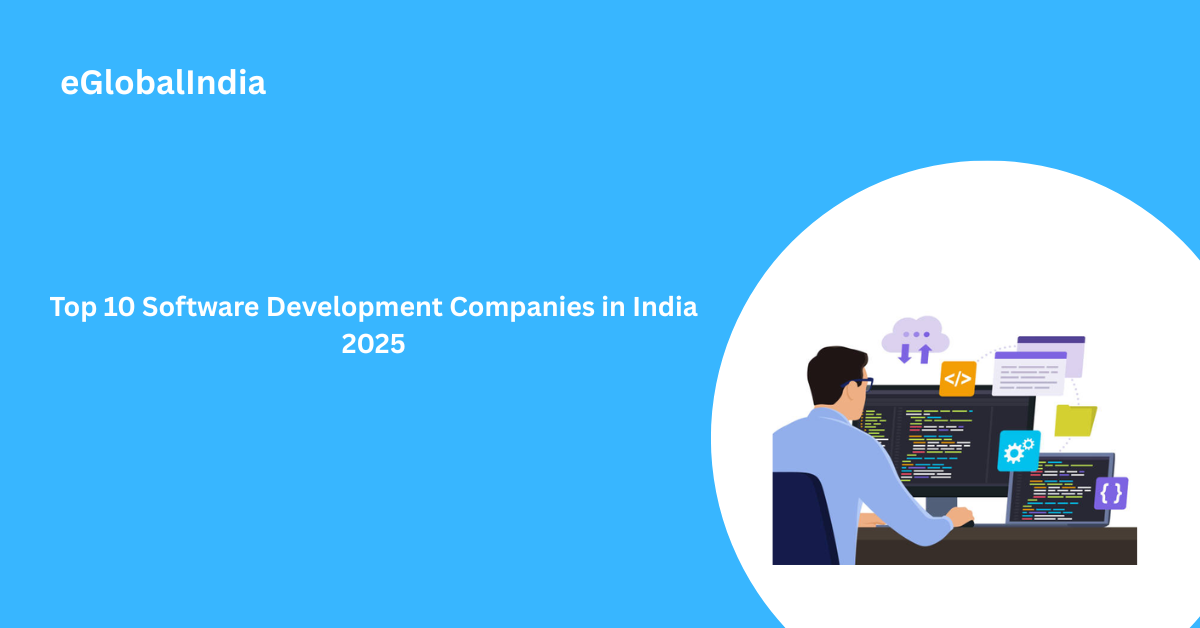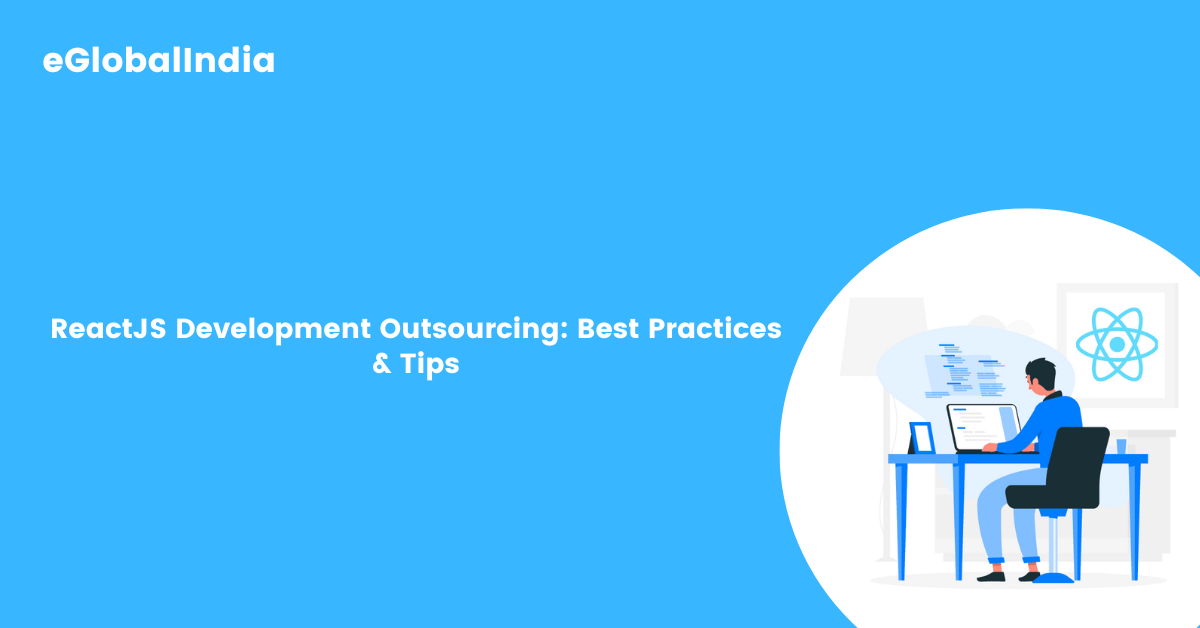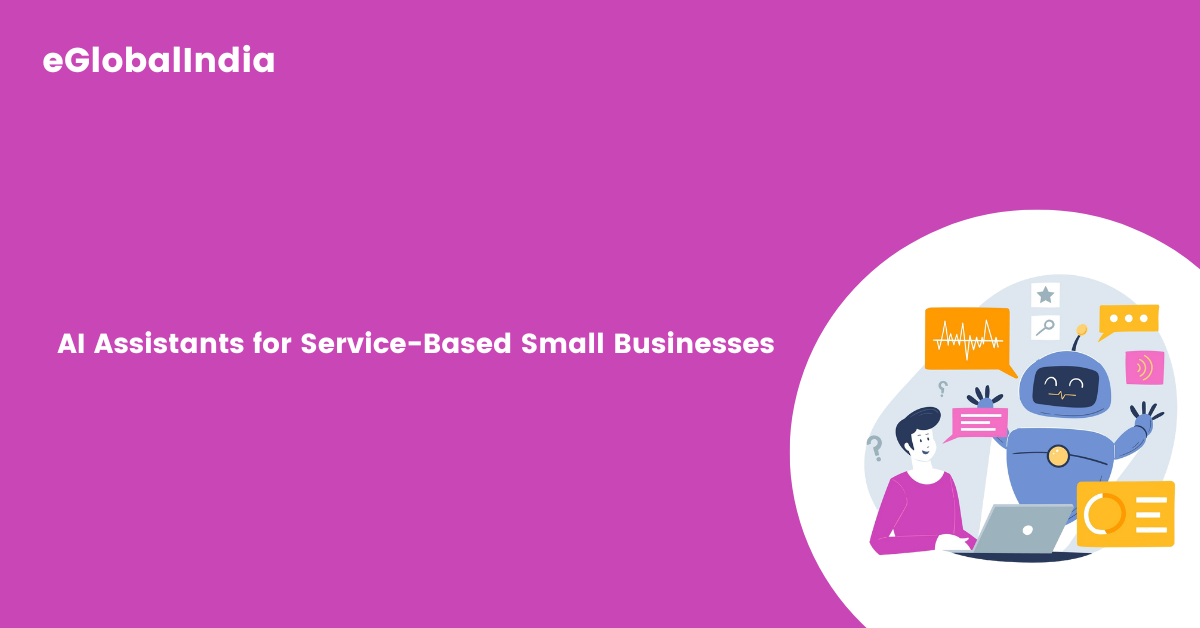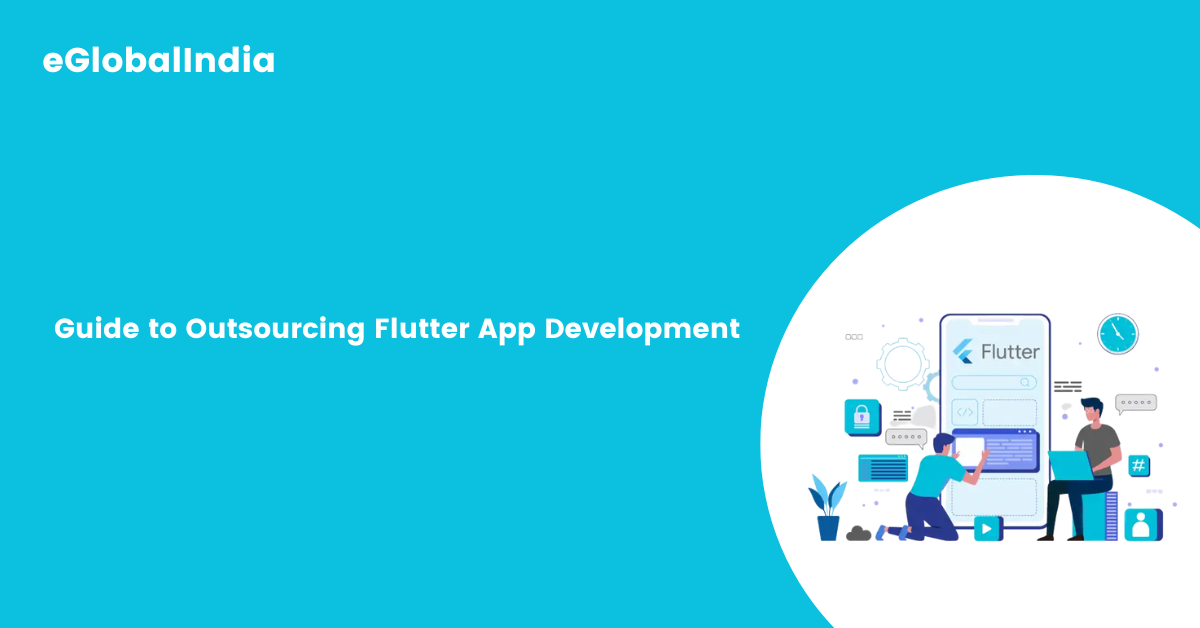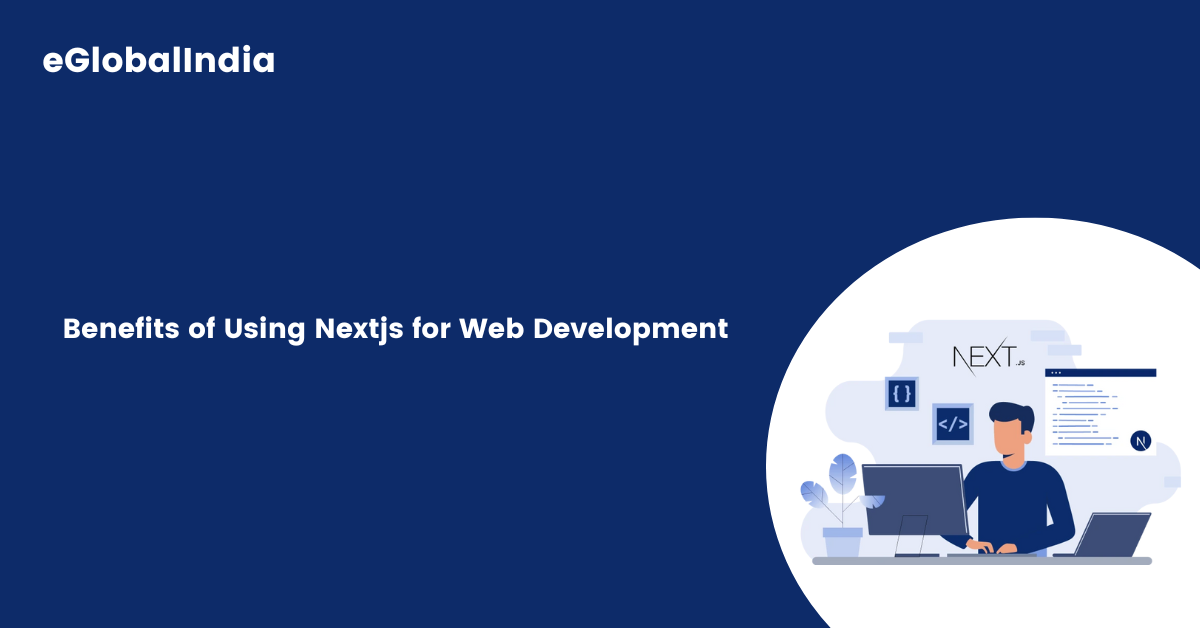These days, your website does more than just show your products or services it’s where people form their first opinion of your brand. A good-looking and easy-to-use site can build trust instantly, while a clunky or outdated one might make visitors leave before you even get a chance to tell your story.
That’s where professional web designers come in. Those who are dedicated to the structure and refinement of their online presence are key steps ahead of the competition. More and more businesses are turning to India for this reason—and it’s easy to see why.
Some of the world’s most talented web designers live in India. The country offers a unique mix of creativity, technical skills, and affordability that’s hard to match elsewhere. Whether you’re starting from scratch or giving your site a much-needed refresh, working with Indian designers can help you create something that truly stands out.
When you begin your search, look beyond flashy portfolios. A great designer understands how people interact with websites, stays updated with design trends, and knows how to create a layout that works across all devices. Good communication is also important—especially if you’re working across time zones. Make sure you’re both on the same page from the beginning.
To get the most out of the collaboration, set clear goals, agree on deadlines, and keep communication open throughout the project. Tools like video calls, shared task boards, and messaging apps can make the process feel seamless, even from miles away.
Why Hiring Dedicated Web Designers Is Important for Your Business
Nowadays, when someone finds your company, they frequently see your website first. Whether someone finds you through Google or clicks a link on social media, what they see on your site can shape how they feel about your brand. That’s why having a professional web designer on your team is more important than ever.
Let’s break down why hiring a dedicated web designer is a smart move and how it can truly help your business grow.
1. Helps You Build a Strong Brand
Every business needs a clear and memorable brand. This includes your logo, colors, and fonts, as well as the look and feel of your website. A web designer takes the time to understand your brand and turns it into a website that represents you in the best way possible.
Instead of using basic templates that dozens of others might also use, a dedicated designer can create something unique for your business. This helps customers remember you and builds trust over time.
2. Makes Your Website Easy to Use
People don’t like websites that are confusing or slow. If someone visits your site and can’t figure out where to go, they’ll leave and probably won’t come back.
A dedicated web designer focuses on making your website easy to use. They know how to create layouts that help people find what they’re looking for without any hassle. This includes clear menus, easy navigation, and pages that load quickly. A smooth user experience keeps people on your site longer and increases the chances they’ll take action—like buying a product or filling out a form.
3. Better Visibility on Google (SEO)
Search engine optimization, or SEO, helps make your website visible on search engines like Google. While content and keywords are important for SEO, web design also plays a big role.
For example, if your site is slow, hard to navigate, or not mobile-friendly, it can hurt your rankings. A dedicated designer knows how to build websites that are optimized for search engines. This includes using proper coding practices, organizing content in a way search engines like, and making sure everything loads quickly.
4. Works Well on All Devices
The number of individuals using their phones to browse the internet is increasing. You are probably losing a lot of potential clients if your website does not work or appear decent on mobile devices.
A professional designer builds websites that work on all screen sizes—from desktops to smartphones. This is called mobile responsiveness. It ensures your website adjusts itself to fit any device, making it easy for visitors to browse, read, and interact with your content no matter how they access it.
5. Designed to Turn Visitors into Customers
Your website shouldn’t just look nice—it should also help you meet your business goals. Whether that’s selling products, getting people to contact you, or signing up for a service, your site should guide visitors toward taking action.
A skilled web designer knows how to place buttons, forms, and other important elements in the right spots. They think about things like color choice, page layout, and where your call-to-action buttons should go. All of this makes it easier for visitors to do what you want them to do.
6. Saves Time and Avoids Mistakes
Many business owners try to save money by using website builders or doing it themselves. While this might seem like a good idea, it often leads to problems down the road. DIY websites can break, look unprofessional, or fail to deliver results.
Hiring a dedicated web designer means you get things done right the first time. They know the best tools, coding languages, and design techniques. This saves you time, reduces frustration, and prevents costly fixes later.
7. Keeps Your Website Updated
A good website isn’t something you build once and forget. It needs regular updates, whether that’s adding new products, changing prices, or keeping your content fresh. A dedicated web designer can help with this.
Having someone who understands how your website works makes it easier to keep things running smoothly. They can help you make changes, improve performance, and add new features as your business grows.
8. Uses the Latest Trends and Tools
The world of web design changes quickly. New features, tools, and styles are constantly being released. A dedicated designer stays up to date with these trends and brings them to your project when it makes sense.
Whether it’s adding animations, improving speed, or making your site more interactive, a web designer knows how to keep your site modern and appealing without overdoing it.
The Reasons India Is the Best Place to Find Qualified Web Designers
For businesses, having a website is now essential, not just a choice. Finding the appropriate web designer is essential, whether you are a startup creating your first online presence or an organization redesigning your user experience. India is currently one of the most sought-after outsourcing locations for web design, and the appeal extends beyond price. Indian web designers are in high demand by businesses all over the world because of their distinctive combination of professionalism, technological know-how, and inventiveness.
What distinguishes India as the best place to hire web designers, then? Let us examine the main causes.
1. Economical Without Sacrificing Quality
The substantial cost benefit is among the most alluring features for companies wishing to outsource web design to India. Professionals in India provide excellent services at a fraction of the price you would spend in Western nations like the US, UK, Canada, or Australia.
Quality is not sacrificed for this cost-benefit. Indian web designers are strongly motivated to produce work that satisfies international standards because of a competitive job market and a heavy emphasis on education. This pricing plan enables you to create a professional-looking website without going over budget, especially for startups and small businesses.
2. An extensive and knowledgeable talent pool
One of the world’s highest concentrations of IT experts is found in India. Universities award degrees in computer science, graphic design, and other digital fields to thousands of students each year. The nation will always have new, talented designers who are abreast of the newest trends and technologies thanks to this steady stream of talent.
India is probably where you can find the necessary knowledge, whether you are looking for a designer with experience in UI/UX design, responsive layout, front-end technologies like HTML5, CSS3, JavaScript, or frameworks like React and Angular. Additionally, a lot of designers focus on platforms like Shopify, Magento, WordPress, and other CMS and eCommerce systems.
3. English-Smooth Communication
One of the most significant obstacles in outsourcing is frequently language. However, that obstacle is much lessened with India. English is widely spoken throughout the nation and is one of the official languages. In actuality, English is used for the majority of school instruction, especially in technical professions.
Because of this, Indian web designers are typically at ease speaking English, which greatly facilitates meetings, feedback sharing, and collaboration for clients from English-speaking nations. This guarantees that the design vision is accurately understood and carried out and helps prevent misunderstandings.
4. The Benefit of Time Zones for Continuous Productivity
A distinct benefit is provided by India’s time zone (GMT+5:30), particularly for companies with headquarters in the US, Europe, or Australia. You can work through the night and make changes while you are asleep. This 24-hour cycle frequently results in increased production and quicker project turnarounds.
This asynchronous process is especially helpful for businesses who want to expedite project timeframes, address pressing design problems, or create MVPs rapidly without overtaxing their internal staff.
5. Vast Experience Working with International Clients
India has developed into a major center for IT and design outsourcing over the past 20 years, providing its specialists with extensive international customer experience. Numerous Indian web designers have worked together on projects for businesses in Asia-Pacific, Europe, the Middle East, and North America.
Due to their global exposure, Indian designers are accustomed to a wide range of user behavior patterns, corporate cultures, and aesthetic tastes. Additionally, it guarantees that they are aware of global online standards such as GDPR compliance, mobile responsiveness, accessibility (ADA, WCAG), and SEO friendliness.
6. Adaptability of Engagement Frameworks
Businesses can easily select a working arrangement that meets their demands thanks to the variety of flexible engagement models offered by Indian web design organizations and freelancers. There are service providers who will work with you regardless of whether you want a one-time design job, a monthly retainer, or a dedicated resource for continuous work.
Without having to commit to long-term contracts or internal recruiting, this flexibility enables firms to scale resources up or down in response to shifting demand.
7. A focus on design trends and innovation
Indian web designers are innovators as well as executors. Many keep abreast with the most recent developments in color theories, animation methods, UX strategies, and design trends. To produce elegant, contemporary designs that meet or even surpass international standards, they regularly experiment with new tools like Figma, Adobe XD, Webflow, and others.
Many Indian experts also offer new ideas that improve functionality and user engagement with a creative mentality and problem-solving style.
8. Robust Tech Ecosystem and Infrastructure
Over the last ten years, India’s IT infrastructure has greatly improved. Modern gear, high-speed internet, and extensive digital literacy enable Indian web designers to manage even complex projects remotely.
Cities like Bangalore, Pune, Hyderabad, and Delhi NCR are also thriving tech hubs, with a large number of freelancers and design agencies providing professional services in a wide range of sectors, including healthcare, e-commerce, banking, and education.
Different Web Designer Types in India
India has emerged as a global hub for web design and development, thanks to its vast pool of talented professionals and affordable services. If you’re looking to build or enhance your website, it’s important to understand the different types of web designers you can hire in India. Each category of designer specializes in unique aspects of website creation, ensuring that your project is handled with expertise from every angle. Here’s a closer look at the most common types of web designers available in India and what they bring to the table.
1. UI Designers (User Interface Designers)
User Interface (UI) designers in India focus primarily on the visual appeal of a website. Their task is to design a visually appealing and user-friendly interface that attracts users. They work with colors, typography, images, buttons, and layout structures to ensure the website looks engaging and aligns with your brand identity.
Because a visitor’s initial impression of a website frequently decides whether they stay or go, UI designers are essential. They craft every visual element with care to create harmony and ensure easy navigation. If you want a website that is visually striking and consistent with your company’s personality, a skilled UI designer from India can deliver just that.
2. UX Designers (User Experience Designers)
UX designers concentrate on how a website works and how people interact with it, whereas UI designers are more concerned with how a website looks. Their role is to make sure the website provides a smooth, meaningful, and user-friendly experience.
UX designers conduct research and testing to understand user behaviors, preferences, and pain points. Based on these insights, they design the website’s structure, flow, and usability features. They make decisions like where to place menus, how many clicks it takes to reach a page, and how to simplify tasks such as purchasing or signing up.
In India, UX designers are increasingly in demand as businesses realize that a great user experience is key to retaining visitors and converting them into customers.
3. Front-End Developers
Front-end developers in India are the bridge between design and functionality. They take the creative mockups made by UI/UX designers and transform them into fully interactive websites. Using coding languages such as HTML, CSS, and JavaScript, front-end developers ensure the site looks good on all devices and browsers, loads quickly, and responds to user actions like clicks, scrolls, and form inputs.
They are experts at translating design files into real web pages that users can interact with seamlessly. If you want a responsive, dynamic, and visually appealing website, hiring a proficient front-end developer from India is essential.
4. Full-Stack Designers (or Full-Stack Developers with Design Skills)
Professionals that combine the abilities of developers and designers are known as full-stack designers. They are capable of handling not just the visual and usability aspects of a website but also its back-end development — which involves managing servers, databases, and application logic.
In India, full-stack designers are prized for their ability to manage end-to-end website creation, making them a cost-effective choice for startups and small businesses. They can design user-friendly interfaces, develop front-end features, and implement back-end functionalities like user authentication and data management.
Why Knowing These Types Matters for Your Project?
Understanding the distinctions between these roles helps you make informed decisions when hiring a web designer or agency in India. For example:
- If you only need a stunning, visually attractive site, focus on hiring UI designers.
- For improving how users interact with your site or app, UX designers are essential.
- If you want your site built with clean, functional code, front-end developers are the go-to professionals.
- For a full-service approach covering design and development, full-stack designers provide a one-stop solution.
Choosing the right type of designer based on your project goals, budget, and timeline can significantly impact your website’s success.
Essential Qualities of a Dedicated Web Designer
Customers frequently get their initial impression of your brand from your website. That’s why hiring a dedicated web designer isn’t just a good idea it’s essential. Whether you’re launching a new site or revamping an existing one, the right designer can elevate your online presence, boost user engagement, and even improve your bottom line.
But with so many professionals out there, how do you choose the right one? Here’s a comprehensive breakdown of the key skills you should look for when hiring a dedicated web designer.
1. Proficiency in Design Tools
One of the first things to evaluate in a potential web designer is their command of industry-standard design software. Tools like Adobe XD, Figma, Sketch, and Photoshop are vital for creating wireframes, prototypes, and final design layouts.
Each of these tools has its own strengths:
- Adobe XD is great for interactive prototypes.
- Figma is cloud-based and perfect for collaborative design work.
- Sketch is favored by many Mac users for its intuitive interface.
- Photoshop remains a go-to for high-detail graphics and photo manipulation.
A strong designer won’t just know how to use these tools—they’ll know when and why to use each one to match your project’s needs.
2. Solid Foundation in HTML, CSS, and JavaScript
While a designer isn’t always responsible for writing code, having a solid understanding of HTML, CSS, and JavaScript is incredibly beneficial. This knowledge helps bridge the gap between design and development, making collaboration smoother and more effective.
- HTML forms the structure of a webpage.
- CSS is what brings the visual design to life—colors, fonts, layouts, etc.
- JavaScript adds interactivity, like animations or dynamic content.
When a designer understands how code works, they can make smarter design decisions that are both beautiful and technically feasible.
3. Mastery of Responsive Design Techniques
The days of solely using desktop computers to read websites are long gone. Today, users access the web from phones, tablets, laptops, and even smart TVs. A good designer understands the importance of responsive design—creating layouts that adapt seamlessly to different screen sizes and orientations.
This includes:
- Using flexible grid systems
- Incorporating scalable images and fonts
- Testing across various devices and browsers
Responsive design isn’t just about aesthetics; it also affects SEO rankings and user experience. A designer who masters this area ensures your site looks and works great, no matter how someone accesses it.
4. Understanding of SEO Fundamentals
While SEO might seem like a marketer’s job, a web designer with a grasp of SEO basics can significantly impact a website’s visibility. Good design can help or hurt your search engine rankings.
For instance:
- Fast-loading pages (which involve optimizing images and scripts)
- Clean, semantic HTML
- Mobile-friendliness
- Structured content layouts that support easy navigation and readability
Designers who understand these factors will naturally create sites that are both user-friendly and search-engine optimized.
5. UX/UI Design Principles
Web design isn’t just about how things look; it’s also about how they work. User experience (UX) and user interface (UI) design focus on making websites intuitive, accessible, and enjoyable to use.
A designer skilled in UX/UI will:
- Prioritize user needs and behaviors
- Create clear navigation paths
- Design with accessibility in mind (e.g., readable fonts, color contrast)
- Conduct usability testing and iterate based on feedback
The result? Visitors will find it easier to interact with your website, stay longer, and convert into customers.
6. Communication and Collaboration Skills
Soft skills, particularly communication, are just as vital as technical skills. Web designers frequently collaborate closely with clients, project managers, marketing teams, and developers. Clear, timely communication ensures that expectations are met and misunderstandings are avoided.
Good designers should be able to:
- Explain design choices in simple, understandable language
- Accept constructive feedback
- Work within a team environment and collaborate on shared goals
- Maintain professionalism during client interactions
If a designer can’t effectively express their ideas or listen to others, even the most beautiful designs might never make it to launch successfully.
7. Project Management Abilities
Whether they’re freelancing or part of a larger team, web designers often juggle multiple tasks and deadlines. Having strong project management skills ensures they can deliver work on time and within scope.
Key project management capabilities include:
- Time management and prioritization
- Familiarity with tools like Trello, Asana, or Jira
- Ability to set realistic timelines
- Keeping organized documentation of design versions and assets
A designer who is both creative and organized will consistently hit milestones and contribute to a smoother workflow.
How to Find a Dedicated Indian Web Designer
Hiring a skilled web designer is one of the most important decisions for any business wanting to establish a strong online presence. India has become a global hub for talented web designers who combine quality with cost-effectiveness. If you’re looking to bring your website vision to life, here are the essential steps to help you hire the right dedicated web designer in India.
Step 1: Define Your Project Goals and Requirements
Start by laying a clear foundation. Before approaching any designer, take the time to define exactly what you need. Consider the following:
- What is the purpose of your website (e.g., portfolio, e-commerce, business site)?
- Who is your target audience?
- What features or functionalities are required (e.g., mobile responsiveness, CMS, SEO optimization)?
- What’s your design style—minimalist, corporate, artistic?
- What is your budget and expected timeline?
Creating a detailed project brief helps set clear expectations and makes it easier for designers to offer accurate quotes and timelines.
Step 2: Start Researching and Create a Shortlist
Once your project goals are clear, start researching potential candidates. There are many platforms and methods to look into:
- Freelancing platforms like Upwork, Freelancer, and Fiverr
- Creative communities like Dribbble and Behance
- Professional platforms such as LinkedIn
- Web design agencies based in India
- Referrals from peers or business groups
As you browse, look for designers or agencies that specialize in your type of project or industry. Shortlist 4–6 designers whose portfolios and experience align with your needs.
Step 3: Review Portfolios with a Critical Eye
A portfolio is more than just pretty pictures it’s a showcase of the designer’s ability to solve real-world design problems. As you review each portfolio, focus on:
- Design quality: Is the work visually appealing and polished?
- Variety: Has the designer worked across industries or design styles?
- Usability: Are the websites functional and user-friendly?
- Mobile responsiveness: Do the designs adapt to different screen sizes?
Also, try to look beyond the surface. See if the designs support a brand’s message or contribute to an effective user journey.
Step 4: Interview the Candidates
Once you’ve shortlisted your top picks, schedule video or phone interviews. This step allows you to assess not only technical skills but also communication style, professionalism, and cultural fit.
During the interview, ask questions such as:
- How do you approach a new design project?
- What design tools and technologies do you use?
- How do you handle revisions or feedback?
- Have you worked with overseas clients?
- What’s your availability and preferred communication method?
Soft skills like listening, flexibility, and attention to detail are just as important as design talent—especially when working remotely across time zones.
Step 5: Assign a Paid Test Task
If you’re unsure between a couple of candidates, assign a small paid test project. This helps you assess how they perform under real working conditions.
Give them a design brief and observe:
- How they interpret your requirements
- The quality and creativity of the output
- Responsiveness and turnaround time
- Willingness to revise or improve based on feedback
Keep the test task realistic and relevant to your actual project. Even a sample homepage layout or wireframe can provide valuable insight into their skills.
Step 6: Check Reviews, References, and Reliability
Before making your final decision, validate the designer’s credibility. Check:
- Online evaluations on sites such as LinkedIn, Upwork, and Clutch
- Testimonials on their website or portfolio
- Client references (don’t hesitate to contact a past client directly)
Ask questions like:
- Were deadlines met?
- How was communication throughout the project?
- Did the designer handle changes or issues professionally?
- Would you hire them again?
This step can prevent future issues and give you peace of mind about your decision.
Step 7: Finalize the Agreement and Sign a Contract
Once you’ve chosen your designer, it’s time to formalize the collaboration with a detailed contract. This should include:
- Scope of work: List all tasks, deliverables, and features
- Timeline: Include deadlines and milestone dates
- Payment terms: Specify fixed rates, hourly rates, or milestone payments
- Revisions: Number of design revisions allowed
- Ownership: Confirm that you’ll receive all source files and rights to the final design
- Confidentiality: Include NDAs or IP transfer clauses if needed
A well-drafted contract protects both you and the designer, creating a transparent working relationship from the start.
Step 8: Set Up Communication and Collaboration Tools
Smooth collaboration is essential, especially when working across countries. After signing the contract, agree on the tools and channels you’ll use for communication and file sharing.
Popular tools include:
- Zoom or Google Meet for video calls
- Slack or Skype for messaging
- Trello, Notion, or Asana for project management
- Google Drive or Dropbox for document sharing
To ensure that nothing is overlooked, make sure there are frequent check-ins and progress reports.
Step 9: Start the Project and Monitor Progress
With everything in place, kick off the project with a detailed kickoff call or document. Set clear expectations for the first phase, provide access to brand assets or existing content, and establish regular update intervals.
As the project progresses:
- Give timely feedback to keep things moving
- Celebrate completed milestones
- Track progress against your timeline
Stay involved and proactive, but also trust your designer’s expertise. A collaborative mindset leads to the best outcomes.
Top Platforms and Agencies to Hire Indian Web Designers in 2025
India continues to be a global leader in IT outsourcing, with web design being one of its strongest areas of expertise. From visually engaging user interfaces to technically sound websites, Indian web designers bring a unique mix of creativity and technical know-how. Whether you’re a startup, small business, or enterprise, finding the right Indian web designer can be a game-changer for your digital presence.
To help you make the best choice, we’ve outlined top freelance platforms, remote hiring sites, and reputable Indian web design agencies—including Eglobal India and Aalpha Information Systems—to consider in 2025.
1. Freelance Marketplaces
These platforms are perfect for businesses looking for flexible, cost-effective talent for short-term or one-off web design projects.
Upwork
Upwork is a globally recognized freelance platform where many Indian web designers offer services in WordPress, HTML, CSS, and UI/UX design. You can review freelancer profiles, client ratings, and portfolios before hiring.
Freelancer.com
Freelancer allows you to post jobs and receive competitive bids from freelancers worldwide. Many Indian designers are active on the platform, offering affordable rates for high-quality design work.
Fiverr
Fiverr is ideal for small businesses looking for fixed-price design gigs. Indian designers on Fiverr offer everything from simple landing pages to eCommerce site designs, often with fast turnaround times and attractive pricing.
2. Remote Hiring Platforms (Pre-Vetted Talent)
If you’re looking for top-tier designers without spending time screening candidates, these platforms offer pre-vetted Indian professionals ready to join your team.
Toptal
Toptal is known for its rigorous screening process, accepting only the top 3% of freelancers. It’s more expensive, but ideal for businesses seeking highly skilled Indian web designers for mission-critical projects.
PeoplePerHour
A solid balance between project-based and freelance hiring is provided by this platform. Indian designers on PeoplePerHour bring both affordability and diverse experience in multiple industries.
3. Indian Web Design & Development Agencies
Hiring a web design agency in India can give you access to a structured team of experts, project managers, and long-term support. Here are some of the top agencies:
Webguru Infosystems
Based in Kolkata, Webguru Infosystems is an ISO-certified agency specializing in responsive web design, UI/UX, and CMS-based websites. They’re known for delivering scalable and cost-effective solutions.
Unified Infotech
With offices in India and New York, Unified Infotech delivers high-end digital solutions for businesses worldwide. Their web design team is particularly skilled in custom front-end development and modern UI frameworks.
FATbit Technologies
FATbit is renowned for its marketplace and eCommerce solutions. Their web design services are tailored for startups and growing brands that want to build user-centric platforms.
Eglobal India
Eglobal India is an emerging leader in the Indian IT outsourcing space. They offer full-stack web design and development services and are known for quick turnarounds, competitive pricing, and strong post-launch support. Their designers are experienced in modern UI/UX trends and platforms like Magento, Shopify, and React.
Aalpha Information Systems
Aalpha is one of the most respected IT companies in India, offering global clients a full suite of web design and development services. Their design team excels in creating responsive, performance-optimized websites for diverse industries such as healthcare, fintech, education, and retail. Aalpha is a great choice for companies seeking end-to-end digital transformation with a design-first approach.
4. Dedicated Remote Hiring Platforms
If you want to hire dedicated web designers from India to work with you long-term or full-time, these platforms make the process seamless.
Uplers
Uplers provides access to pre-vetted Indian web designers who can work with you remotely. They handle payroll, onboarding, and compliance, making it easy for businesses to scale teams quickly.
Turing
Turing is a great option if you’re looking for high-performing designers who are vetted using AI algorithms and technical assessments. It’s well-suited for startups looking for Silicon Valley-caliber remote talent from India.
Peerbits
Peerbits combines the benefits of an agency and a hiring platform. They offer dedicated web design teams tailored to your project needs. Their Indian designers are experienced in responsive and mobile-first designs using the latest tools and frameworks.
Final Tips for Hiring the Right Web Designer
- Define Your Project Scope: Know whether you need a simple landing page, a full-scale eCommerce site, or a corporate website.
- Check Portfolios: Always review previous work to assess design quality, usability, and alignment with your brand.
- Communication is Key: Ensure your chosen freelancer or agency is responsive and understands your vision clearly.
- Consider Time Zones & Language: Most Indian professionals speak fluent English and can adjust to your time zone, especially if hired through dedicated platforms.
Why Hiring an Indian Web Design Agency Is a Smart Move for Your Business
Having a strong internet presence is now necessary, not optional. Whether you’re launching a new brand, redesigning your website, or enhancing your eCommerce platform, the quality of your web design plays a major role in customer engagement and overall success. For businesses seeking top-quality service without breaking the bank, hiring a web design agency from India has become an increasingly attractive option.
Indian web design agencies offer more than just beautiful layouts they deliver comprehensive digital solutions. From highly skilled professionals to cost-effective development processes, here’s a breakdown of the key benefits of choosing an Indian web design company for your next project.
1. Access to a Skilled and Diverse Team
When you hire a web design agency in India, you’re not just getting a designer; you’re getting an entire team of seasoned professionals. Indian agencies typically employ a combination of UI/UX designers, front-end and back-end developers, SEO specialists, and digital marketing experts.
This diversity means your project benefits from a wide range of expertise. For example, while designers focus on aesthetics and usability, developers ensure your website is responsive and functional, and marketers make sure your platform is optimized for visibility. This collaborative approach leads to cohesive and efficient results.
2. Structured Workflows and Timely Delivery
Time is of the essence in digital business, and Indian web agencies understand that. Many follow international project management standards like Agile or Scrum to keep the process transparent and collaborative.
From the initial consultation to wireframing, prototyping, and final launch, each stage is carefully planned with milestones and deadlines. You’ll often have access to tools like Jira, Trello, or Basecamp to track progress and provide feedback. This structure ensures that projects remain on schedule and adjustments are handled promptly, preventing last-minute surprises.
3. Affordable Pricing Without Compromising Quality
One of the most well-known advantages of outsourcing to India is cost-effectiveness. Due to a lower cost of living and favorable currency exchange rates, Indian agencies can offer competitive pricing compared to agencies in the US, UK, or Australia.
This doesn’t mean compromising on quality. In fact, many Indian web design firms have a long history of working with global clients and are adept at meeting high standards. Whether you’re a startup on a budget or a large enterprise looking to optimize costs, you’ll find pricing models that suit your needs—be it fixed cost, hourly, or dedicated resources.
4. Post-Launch Support and Maintenance
After the website launches, the work does not stop. Regular updates, performance monitoring, bug fixes, and adding new features are all part of maintaining a successful website.
Post-launch support is frequently included in the packages offered by Indian web design companies. Whether it’s a basic maintenance plan or a comprehensive service level agreement (SLA), you’ll have peace of mind knowing that help is just an email or call away. This ongoing relationship is key to ensuring your digital presence remains smooth, secure, and updated over time.
5. Use of Modern Technologies and Tools
Since technology is changing so quickly, it is imperative to stay current. Indian web development companies are known for adopting the latest tech stacks and tools to build modern, scalable, and efficient websites.
Whether it’s using React.js for front-end development, Node.js for back-end, Figma for design collaboration, or WordPress and Shopify for CMS and eCommerce solutions, these agencies stay current with industry trends. This allows your business to benefit from faster loading times, mobile responsiveness, advanced security protocols, and optimized user experiences.
6. Scalable Solutions for Business Growth
Your web design needs today might not be the same a year from now. Perhaps you plan to expand your eCommerce offerings, target new markets, or integrate third-party services like CRMs and chatbots.
Scalable solutions that grow with your company are provided by Indian agencies. Many provide flexible engagement models that allow you to upgrade your services as your company grows. Whether you need to migrate from a basic website to a complex portal or add custom features, these agencies can accommodate your changing requirements without disrupting your existing platform.
7. Cultural Compatibility and English Proficiency
A common concern when outsourcing is communication barriers. Fortunately, most Indian web design agencies operate in English and have experience working with international clients. From project kick-off to daily stand-ups and client presentations, communication is typically smooth and professional.
Additionally, a lot of agencies are culturally sensitive and aware of the subtleties of other markets. This makes collaboration easier and more productive, especially when working across different time zones.
Hiring Dedicated Web Designers in India: A Detailed Cost Breakdown
India is now well recognized as one of the best places in the world to get web design services. Thanks to a thriving tech ecosystem and a large pool of talented professionals, hiring dedicated web designers in India is both cost-effective and efficient. Whether you’re a startup, a small business, or an established enterprise, you’ll find a range of pricing options depending on your specific needs, project complexity, and hiring model. Let’s break down what you can expect when budgeting for a web designer from India.
1. Freelance Web Designers: $10 to $30 per Hour
Freelancers are a popular choice for businesses with limited budgets or small-scale projects. In India, freelance web designers often charge $10 to $30 per hour. The complexity of your website, the designer’s portfolio, and their expertise can all affect this range.
Junior freelancers or those just starting out may charge closer to $10/hour, offering basic design and front-end development skills. On the other hand, seasoned professionals with a robust portfolio, UX/UI expertise, or niche specialization may ask for $25 to $30/hour. Hiring freelancers is ideal for landing pages, website redesigns, or limited-time engagements.
However, it’s essential to vet freelancers carefully—ensure you assess their previous work, reviews, and communication skills to avoid misalignment or delays.
2. Mid-Level Dedicated Designers (Full-Time): $500 to $1,500 per Month
If your project requires ongoing design work, such as regular updates, iterative UI/UX improvements, or long-term collaboration, hiring a full-time dedicated designer from India can be a smart move. These designers usually cost between $500 and $1,500 per month.
At the lower end of this range, you’ll find mid-level designers with solid foundational skills in HTML, CSS, Adobe XD, Figma, and Photoshop. As you approach the $1,000 to $1,500 bracket, you’re likely to find designers with 4–6 years of experience, stronger UX/UI sensibilities, and expertise in responsive and mobile-first design.
Hiring full-time dedicated designers is especially useful for startups, SaaS companies, or agencies needing someone who feels like an extension of their internal team—without the overhead of in-house hiring.
3. Web Design Agencies: Project-Based Pricing from $500 to $10,000+
For businesses seeking a more managed, all-in-one solution, design agencies in India are a strong option. These agencies often offer complete design packages including planning, wireframes, prototyping, development handoffs, and even branding.
Pricing here is usually project-based and varies widely depending on the scope. A basic business website might cost anything from $500 to $1,000. More complex web applications, eCommerce sites, or corporate portals can range from $3,000 to $10,000 or more. Agencies typically bring a team of designers, developers, project managers, and QA testers, offering a more structured and scalable workflow.
The biggest advantage of hiring an agency is reliability, faster turnaround, and access to multi-disciplinary talent. However, it can be pricier than working directly with individual designers.
Which Option is Best for You?
- Go for freelancers if you need short-term help or are working with a tight budget.
- Choose full-time dedicated designers if your needs are ongoing and you want more control over workflow and revisions.
- Opt for an agency if you prefer a hands-off approach with guaranteed delivery and professional project management.
Common Outsourcing Challenges and Effective Ways to Handle Them
Outsourcing has become an essential strategy for businesses seeking to grow faster, cut operational costs, and tap into specialized expertise from around the world. From IT development to customer service, companies rely on global partnerships to get more done. Even while outsourcing has many advantages, there are drawbacks as well.
If you’re considering or currently managing outsourced work, it’s important to understand the typical obstacles that may arise—and more importantly, how to navigate them with confidence and clarity. Below are some frequent challenges and practical solutions to help you stay ahead.
1. Managing Time Zone Differences
When collaborating with a team in another country, overlapping work hours can be limited, making real-time collaboration more difficult. This is especially true if your business is based in North America and your partners are in Asia or Eastern Europe.
How to Solve It:
- Plan overlapping hours: Even if it’s just a couple of hours a day, find common working times for meetings or live discussions.
- Use time zone tools: Tools like World Time Buddy can help everyone stay aware of scheduling across different regions.
- Embrace asynchronous workflows: Use email, messaging platforms, and recorded updates to keep everyone in the loop without needing immediate responses.
2. Concerns About Work Quality
A common worry when outsourcing is whether the external team will meet your expectations in terms of output, reliability, and attention to detail. Since you’re not in the same office, it may feel harder to monitor progress or intervene when issues arise.
How to Solve It:
- Start small: Before entering a full-scale project, assign a sample task or short-term project. This helps assess quality and work ethic without long-term risk.
- Do your research: Always request samples of past work, case studies, and client feedback. A quick reference check can reveal a lot.
- Define deliverables clearly: Provide clear project guidelines, success criteria, and feedback processes to minimize misunderstandings.
3. Communication Barriers
Without regular face-to-face interaction, teams might struggle to stay aligned. Misunderstandings can develop when there’s a lack of consistent updates or unclear instructions.
How to Solve It:
- Choose reliable communication tools: Platforms like Slack for quick messaging, Zoom for video calls, and Trello or Asana for task tracking can help ensure everyone stays on the same page.
- Assign a coordinator: Having a dedicated liaison between both teams improves accountability and ensures nothing slips through the cracks.
- Set up routine check-ins: Weekly or biweekly calls allow both sides to share updates, address challenges, and maintain momentum.
4. Cultural Differences
Cultural variations can influence how teams approach tasks, respond to feedback, or prioritize responsibilities. Language nuances and different holiday schedules can also lead to delays if not addressed early on.
How to Solve It:
- Foster cultural awareness: Encourage both teams to learn about each other’s customs, holidays, and communication styles to build mutual understanding.
- Clarify expectations: Be explicit about deadlines, project scope, and quality standards so there’s no room for ambiguity.
- Encourage open dialogue: Create an environment where questions are welcomed, and feedback is shared constructively.
Smart Strategies for Building Long-Term Collaborations That Work
Creating a lasting professional relationship whether with clients, partners, or remote teams requires more than just mutual interest. True collaboration is built on trust, consistent communication, and shared purpose. Like nurturing any meaningful connection, successful long-term partnerships demand continuous effort and attention.
Here are five practical and people-focused strategies to help you grow a healthy, long-lasting professional collaboration.
1. Keep Communication Flowing and Honest
Consistent, transparent communication is the foundation of any thriving working relationship. It’s not uncommon for miscommunications to stem from assumptions or silence rather than disagreement.
Make it a point to regularly connect this could be a weekly Zoom call, a shared project update, or just a quick message to touch base. Don’t limit conversations to deadlines and deliverables. Discuss ideas, challenges, and goals, too.
Most importantly, be open. If there’s a hiccup in the process or something doesn’t sit right with you, speak up early. Honest discussions prevent small issues from snowballing and show mutual respect.
Helpful Tip: Use collaborative tools like Slack, Microsoft Teams, or Zoom to ensure clear communication across locations and time zones.
2. Clearly Define Roles and Objectives
Clarity is key when multiple parties work together. Everyone should know what they’re responsible for, what’s expected of them, and when key milestones should be reached.
Set clearly outlined goals from the beginning. For best results, make sure they follow the SMART formula Specific, Measurable, Achievable, Relevant, and Time-bound. Instead of vague goals like “We want more users,” aim for something specific like “Increase new user signups by 15% in the next 60 days.”
Breaking the project into phases or benchmarks helps maintain momentum, spot issues early, and celebrate progress along the way.
Pro Tip: Keep expectations and timelines documented, and revisit them regularly to stay aligned as the project evolves.
3. Give and Accept Constructive Feedback
Open feedback loops are essential for professional growth and project success. Don’t think of feedback as pointing out flaws see it as a tool for refinement and improvement.
When offering feedback, be kind and precise. Instead of vague criticism, offer useful suggestions like, “The page layout feels crowded can we simplify the design and add more white space?”
Just as important is the ability to receive feedback graciously. Being open to suggestions, even when they’re critical, reflects a commitment to growth and partnership.
Tip: Platforms like Loom and Figma make it easy to share visual and contextual feedback in real time.
4. Stay on Track with the Right Tools
No matter how well you communicate or plan, things can quickly get disorganized without the proper systems in place. That’s where project management tools can make a huge difference.
Whether you’re assigning tasks, tracking deadlines, or collaborating across teams, platforms like Asana, Trello, ClickUp, or Notion offer a clear overview of responsibilities and timelines. These tools reduce the risk of forgotten tasks or duplicated work and help keep everyone accountable.
Having a shared dashboard also ensures transparency, so all parties can monitor progress and adjust priorities when needed.
Extra Tip: Use shared calendars and time-blocking tools to coordinate across teams and avoid scheduling conflicts.
5. Recognize Achievements Big and Small
It’s easy to focus on major project milestones, but acknowledging smaller accomplishments along the way can greatly boost morale and motivation.
Did your team complete a sprint early? Did someone solve a persistent bug? Celebrate it! Recognizing these wins not only uplifts the team but also strengthens trust and encourages continued effort.
You don’t need grand gestures sometimes, a simple “Well done” in a group chat or a shout-out in a team meeting is all it takes to make someone feel valued.
Fun Suggestion: Create a “Win Wall” in your virtual workspace where team members can post daily or weekly accomplishments.
FAQs: Hiring Dedicated Web Designers in India
1. How much does it cost to hire a web designer in India?
Costs vary depending on experience, complexity, and duration, but you can expect rates from $10 to $25 per hour, or $800–$2,000 per month.
2. Is the quality of work from Indian designers reliable?
Yes. Many Indian designers are highly skilled, experienced with global projects, and follow international design standards.
3. How do I communicate with a designer in India if I’m in a different time zone?
Most professionals are flexible with time zones and use tools like Zoom, Slack, and email to ensure smooth communication.
4. Can I hire a designer for just a short-term project?
Absolutely. Many designers offer flexible engagement models, including project-based or hourly contracts.
5. Will I get regular updates on my project?
Yes, especially if you agree on a communication schedule. Tools like Trello, Asana, and Google Docs make collaboration easy.
6. What if I’m not satisfied with the designer’s work?
Reliable agencies and platforms have satisfaction guarantees or replacement policies. Always check terms before hiring.
7. Can a dedicated designer handle both design and development?
Some professionals are full-stack (design + code), but it’s best to hire separate experts for advanced development needs.
8. What design tools do Indian web designers typically use?
Common tools include Adobe Photoshop, Illustrator, Figma, Adobe XD, InVision, and Sketch.
9. Do I retain ownership of the website and its designs?
Yes. As long as this is specified in your contract, you will own all creative assets and website content.
10. How do I choose between a freelancer and a design agency in India?
Freelancers may offer lower costs and flexibility, while agencies provide structured workflows, support teams, and broader expertise.
11. Is it safe to share business data with a remote designer?
Yes, as long as you sign an NDA (Non-Disclosure Agreement) and work with reputable professionals or platforms.
Conclusion
Choosing to hire a dedicated web designer from India can be a game-changing decision for businesses looking to build or enhance their digital presence. Whether you’re launching a new website, revamping an existing one, or aiming to create a more user-friendly online experience, Indian designers bring a unique blend of creativity, technical skill, and cost-effectiveness to the table.
India is known for being a global center for online and tech talent.
The country’s designers are not only proficient in modern design tools and platforms but also experienced in working with clients from around the world. This international exposure equips them with the ability to adapt to various business styles, cultural nuances, and project demands with professionalism and ease.
One of the standout advantages of hiring web designers in India is the ability to access high-quality design services at competitive rates. This allows businesses especially startups and small to medium-sized enterprises to achieve premium results without overextending their budgets. And with flexible hiring models (freelance, part-time, or full-time), you have the freedom to scale your team based on your project’s evolving needs.
Of course, successful collaboration depends on more than just talent. It’s important to clearly define your objectives, set expectations early, and maintain open lines of communication throughout the project. When these elements are in place, working with a dedicated designer in India can lead to a smooth, productive, and mutually beneficial partnership.
In essence, hiring an Indian web designer isn’t just a cost-saving move it’s a smart strategy for achieving beautiful, functional, and results-driven digital solutions. With the right approach, you can turn your website into a powerful tool that reflects your brand, engages your audience, and supports long-term business growth.
Need expert design help? Contact us now.

